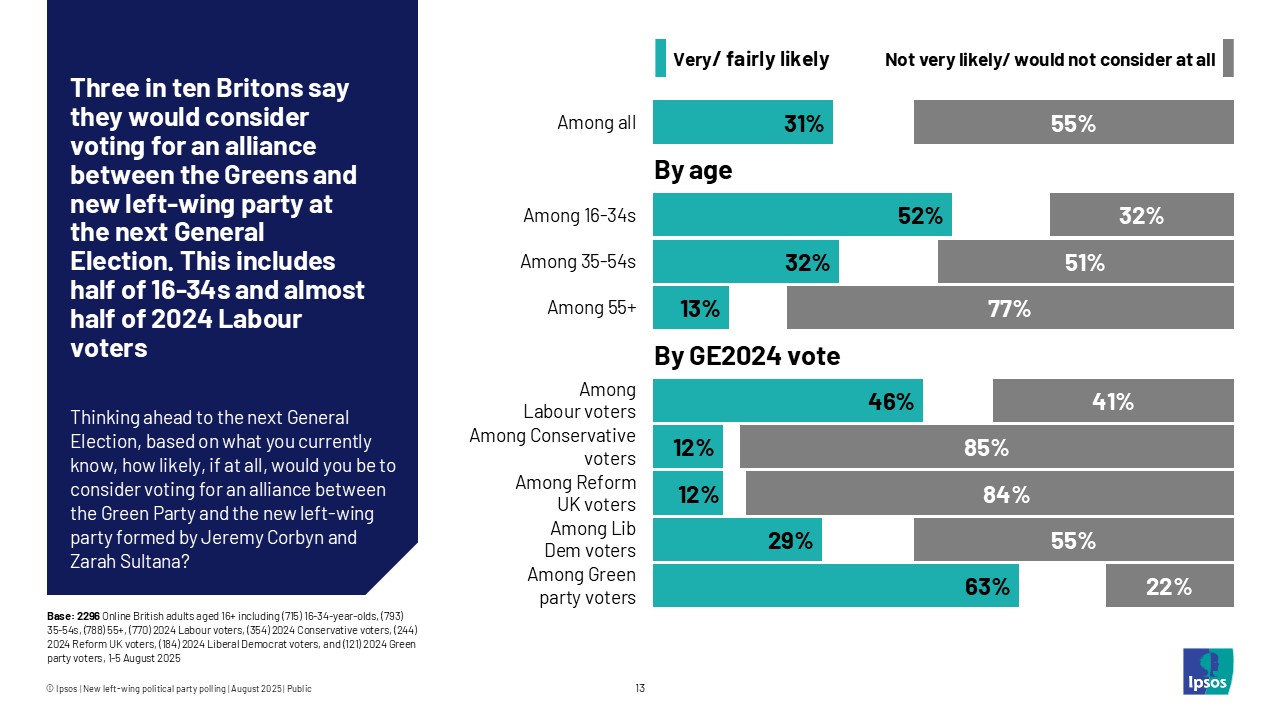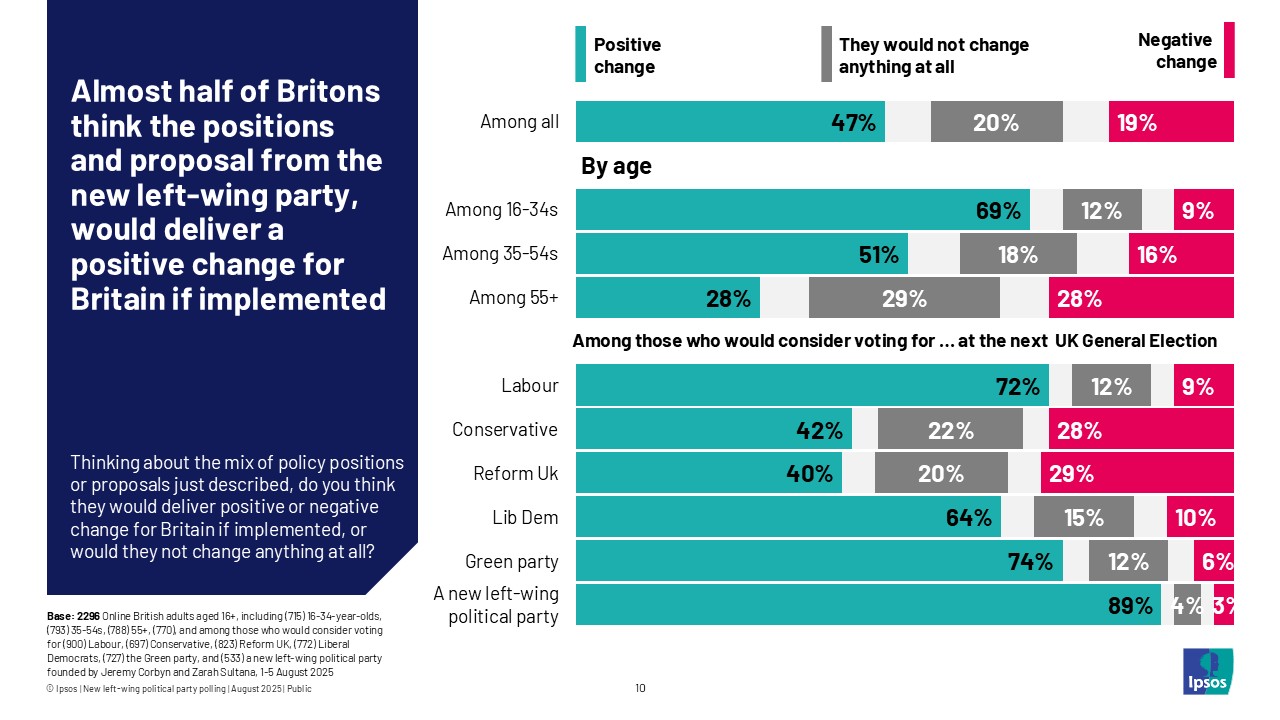One in five Britons would consider voting for a new left-wing party, rising to one in three young people and Labour voters
A new Ipsos in the UK poll reveals that the left-wing political party recently founded by former Labour leader Jeremy Corbyn and MP Zarah Sultana could capture a significant segment of the British electorate, particularly among younger voters and those who supported the Labour and Green parties in the 2024 General Election.
Overall, 20% of British adults say they would be 'very' or 'fairly likely' to consider voting for a new left-wing party. This figure, however, masks a sharp generational divide. A third (33%) of those aged 16-34 would consider voting for the new party, a figure that drops to 22% among 35-54s and just 9% among those aged 55 and over.
The potential for this new party to disrupt the existing political landscape is most evident in its appeal to voters of other left-leaning parties. One-third (33%) of those who voted Labour in 2024 and 43% of 2024 Green party voters would consider lending their vote to a Corbyn-Sultana-led party.

Other key findings
- Potential alliance with the Green party: The public is split on a potential electoral alliance between the new left-wing party and the Green Party, with 29% of Britons supporting such a pact and 28% opposing it. However, support is strong among key demographics, including 16-34s (46%), 2024 Labour voters (47%), and especially among those who would consider voting for the Green Party (60%) or the new left-wing party (74%).
- A united ticket: An alliance between the two parties would be a potent force, with 31% of all Britons saying they would consider voting for a united ticket. This rises to a majority (52%) among 16-34s and includes nearly half (46%) of 2024 Labour voters.

- Policy appeal: Keeping the NHS fully public is the most popular proposal of the new party’s assumed policy platform, with 51% of the public supporting it. This is followed by taxing the rich to redistribute wealth (34%) and introducing rent controls (29%). Among those who would consider voting for the new party, these policies are even more popular, with 64% backing a fully public NHS and 56% supporting higher taxes on the wealthy.
- Belief in positive change: Nearly half of the British public (47%) believe the new party's policy proposals would deliver a positive change for Britain. This sentiment is overwhelmingly shared by young people (69% of 16-34s) and those who would consider voting for the new party (89%).

- Concerns over competence and affordability: Despite the appeal of its policies, the public harbours significant doubts about the new party's ability to deliver. Three in five Britons are not confident that the policies would be affordable (60%) or delivered competently (61%).
- Key issues for voters: The poll reaffirms that the NHS/Healthcare (57%) and the cost of living (54%) continue to be key issues that will be very important in helping the public decide how to vote at the next General Election. For those considering the new left-wing party, however, poverty/inequality (47%) and housing (40%) are significantly higher priorities compared to the general public.
Commenting on the findings, Keiran Pedley, Director of UK Politics at Ipsos said:
These figures show that a new left-wing party led by Jeremy Corbyn and Zarah Sultana has the potential to shake up British politics. A significant number of younger people are at least prepared to consider voting for it and a majority of those aged under 35 say they would consider voting for some kind of alliance between the new party and the Greens. Clear policies around change, the NHS, poverty and wealth taxes could be popular. Time will tell if the new party can turn this hypothetical appeal into real votes on a significant scale.
Technical note:
- Ipsos interviewed a representative sample of 2,296 adults aged 16+ across Great Britain. Polling was conducted online between the 1st-5th August 2025.
- Data are weighted to match the profile of the population. All polls are subject to a wide range of potential sources of error.




